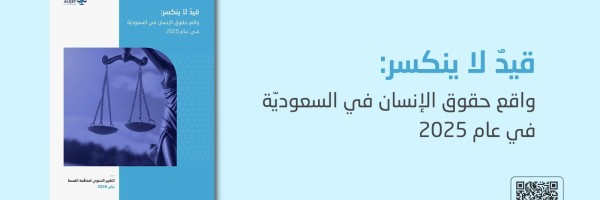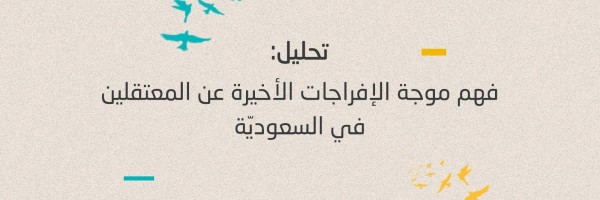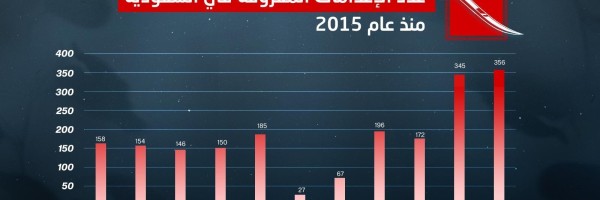ALQST has learned of attempts by the Saudi authorities to instigate the deaths of prominent activists Khaled al-Omair and Mohammed al-Qahtani, who are currently serving long prison terms in Saudi jails, as the authorities continue to ramp up their campaign of vengeance on prisoners of conscience and human rights defenders.
ALQST recently received information about an attempt to kill prisoner of conscience Khaled al-Omair, who was arrested for his peaceful activism and sentenced to seven years in prison, followed by a seven-year travel ban, on charges that included launching a hashtag saying “The People Want A New Constitution”. Reports reaching ALQST say an attempt was made to kill al-Omair by another prisoner whom he had never seen before, and has not seen again since the murder attempt, which took place on 30 July 2021 at 1:30pm local time. ALQST urgently calls for an investigation into the incident; given that the prison has surveillance cameras, the authorities responsible should be able to discover what happened.
Al-Omair’s health has been getting worse because of deliberate medical neglect: he is having increasing breathing difficulties, among other ailments.
ALQST previously learned about another prisoner, Zaheer Ali Shareeda, who died in May this year because of medical negligence after he contracted COVID-19. The circumstances surrounding Shareeda’s death remain unclear, and when the authorities unexpectedly telephoned his family and asked them to collect his body they gave no explanation. Shareeda, who was arrested for his activism on Twitter, had taken part in a hunger strike with other prisoners including Mohammed al-Qahtani and Essa al-Nukheifi, in protest over their harsh sentences. He had announced before his death that he intended to go on hunger strike again.
Rights activist and prisoner of conscience Mohammed al-Qahtani is another victim of deliberate medical neglect. He too had caught COVID-19 at the time of Shareeda’s death, but the prison administration did not alert him to this. Furthermore, al-Qahtani is still in a section reserved for mentally ill prisoners, despite having asked repeatedly to be transferred elsewhere. He has more than once gone on hunger strike in protest at his ill-treatment and the lack of a response to his demands.
On 9 August 2021 al-Qahtani began a hunger strike in protest at not being transferred out of the mental patients’ ward, and at being mistreated and denied books. He suspended his strike on 12 August, when the prison administration promised to look into his demands, but resumed it on 15 August after authorities failed to act on its promises or rectify his situation.
There was also a terrifying incident in which one of the mental patients in the wing where al-Qahtani is being held started a fire. The prison administration eventually managed to bring the fire under control and put it out, but it left conditions on the wing even worse. All of this clearly illustrates the extent of the deliberate neglect al-Qahtani is having to endure, and the authorities’ wilful negligence towards the inmates of the wing.
Still fresh in people’s minds is the deliberate medical neglect that led to the death in April 2020 of iconic human rights defender Abdullah al-Hamid, a founding member of the Saudi Civil and Political Rights Association (ACPRA), when the authorities ignored the urgent need for him to undergo surgery as a result of mounting health problems, and threatened to cut all contact with his family if he told them about his state of health. The case led to fear that the authorities might intend to do the same with other activists.
ALQST’s Acting Director Nabhan Al-Hanshi commented: “The way the Saudi authorities treat human rights activists in prison shows that they are bent on vengeance, and fills us with concern for their safety and well-being. We fear further cases of wilful medical negligence, and of the authorities making conditions for these prisoners increasingly difficult, to the point of endangering their lives. The Saudi authorities must undertake immediate and thorough investigations into the attempt on Khaled al-Omair’s life and the unexplained circumstances of Zaheer Shareeda’s death, and make every effort to preserve all prisoners’ health.”
ALQST calls on the Saudi authorities to allow independent international observers access to detention facilities in order to assess prison conditions and ensure the safety and welfare of prisoners; to ensure that all places of detention are subject to regular monitoring by an independent institution; and to ensure independent inquiries into all deaths in detention.




